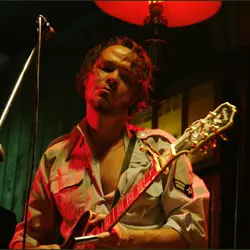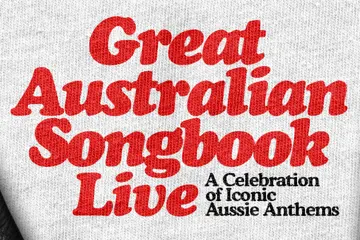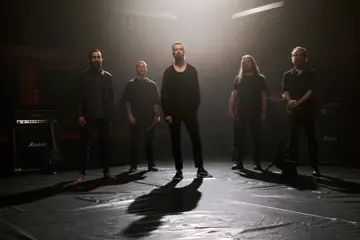 Hugo Race
Hugo RaceHugo Race has cut a swathe of seminal records that weave in and out of many genres, from the desperate blues scramble of The True Spirit, the existential climes of Dirtmusic to the brooding intensity of his founding days with The Bad Seeds. The Fatalists arm of Race’s music sees him collaborating with two members of Italian topographic instrumental band Sacri Couri.
“They are also very easy to work with; they are fast, intuitive players. We never rehearse much, they grasp the songs quickly. They are music teachers also so they are able to break down things to their simplest elements then bring their own interpretation to the material, so they have their own approaches. They are very much inspired by folk-rock, for want of a better word, by which I mean Gram Parsons, Los Lobos, Dylan… that whole slightly ruralesque genre that they run off. Because of that I focus on the more picturesque elements of my songwriting; I work through many other genres, but that is what works for them. They’ve trained themselves to play in the Lido style too, this Italian form of dancehall music from the ‘50s and’ 60s which originated in the area where they come from. Therefore Fatalists becomes this concoction of Lido and American folk music, and I find myself crafting songs specifically with that worldview in mind.”
“I’ve always related to very emotional things, very human things. I often struggle to find other themes worthy to build songs about."
The partnership may delineate a particular musical avenue, but the subject matter remains the same. Race has contemplated the universal truths of life, love and death throughout his 30-year career, and it’s a wellspring that continues into the Fatalists’ Orphans EP.
“I’ve always related to very emotional things, very human things. I often struggle to find other themes worthy to build songs about. Life/love/death are the deepest experiences that we can have, and I think music handles those themes incredibly well, perhaps better than any kind of self-expression. I also feel to a certain extent that if you have moments to connect with an audience, a small piece of time, to seize their attention and I don’t want to waste it on things that aren’t all-important to me.
Don't miss a beat with our FREE daily newsletter
“These powerful elements are experienced all the time, and day-to-day life gets in the way of purely focusing on them. The music takes us away from the profanity of our own lives if you like. I’m instinctively drawn to these things, so [Orphans] is a natural continuation of that. I feel that I will explore this indefinitely through music and lyrics and poetry and film because these themes are so intangible. When pondering these themes for any amount of time, moving in other directions seems superfluous to me. I don’t think there is any limit to this.”















